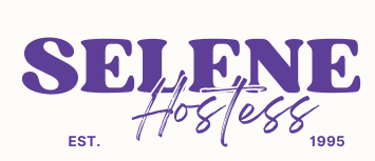How to Become a Successful Event Hostess
Discover how to become a successful event hostess with this complete guide. Learn essential skills, etiquette, and tips to excel at weddings, corporate events, and luxury gatherings. Perfect for beginners and aspiring professionals in the event industry
5/29/20253 min read


Being an event hostess is more than just greeting guests and flashing a smile—it’s a role that demands charisma, organization, poise, and the ability to think on your feet. From corporate events and trade shows to private parties and luxury galas, the hostess is often the face of the event, setting the tone and ensuring a seamless guest experience.
If you're considering a career in this field or simply want to improve your skills, here’s a comprehensive guide to becoming a successful event hostess.
1. Understand the Role
An event hostess is responsible for welcoming guests, offering information, guiding attendees, and ensuring everyone feels comfortable and well-informed. Depending on the nature of the event, duties may also include checking invitations, managing VIPs, supporting organizers, and coordinating with catering or tech teams.
In essence, a successful hostess is part ambassador, part coordinator, and part problem-solver.
2. Master the Core Skills
To thrive as an event hostess, you need a mix of hard and soft skills:
Communication Skills
Clear and polite communication is critical. You must be able to explain details, answer questions, and interact with diverse people confidently and kindly.
Professional Appearance
First impressions matter. Dress appropriately for each event, maintain good hygiene, and carry yourself with grace. A neat, professional appearance shows respect for the event and its guests.
Time Management
Punctuality is non-negotiable. Arriving early helps you understand the event flow and align with the organizers’ expectations.
Multitasking Ability
Events are dynamic. You may need to guide guests while relaying updates to the staff or resolving an issue—often simultaneously. Staying composed while juggling tasks is key.
Foreign Language Skills
For international or high-end events, knowing additional languages can be a significant asset.
3. Build Relevant Experience
Start by participating in smaller events such as local conferences, weddings, or promotional campaigns. Volunteering is also a great way to gain exposure. Over time, you'll develop a portfolio that showcases your versatility and professionalism.
Consider working with event agencies to get regular gigs. Agencies often look for candidates who are reliable, presentable, and experienced.
4. Develop Your Personal Brand
In today’s digital age, building a personal brand can give you a competitive edge. Create a professional portfolio or profile with high-quality photos, a résumé, and testimonials from past clients. Use social media platforms like Instagram or LinkedIn to share behind-the-scenes looks at events you’ve worked on, showcase your skills, and network with industry professionals.
If you're looking to work at upscale events, having a polished online presence can significantly boost your credibility.
5. Learn the Etiquette
Every hostess should know basic etiquette. This includes:
How to greet guests formally and informally
Proper dining and serving manners
Addressing guests of different statuses
Handling complaints diplomatically
Maintaining composure in tense situations
Understanding cultural customs is also crucial, especially at international events.
6. Stay Physically and Mentally Prepared
Hosting an event can be physically demanding. You may be on your feet for hours, dealing with crowds, and maintaining a cheerful demeanor throughout. Therefore, a healthy lifestyle—balanced diet, regular exercise, and adequate sleep—can help sustain your energy and professionalism.
Equally important is mental resilience. Unexpected issues can arise at any time. Being adaptable and solution-oriented ensures you don’t panic when things don’t go as planned.
7. Invest in Education and Training
While formal education isn’t mandatory, courses in hospitality, public relations, or event management can give you an advantage. Workshops on etiquette, personal presentation, or communication are also beneficial.
Additionally, consider certifications in first aid, especially for large-scale events. Being prepared for emergencies can make you an even more valuable asset to event organizers.
8. Focus on Guest Experience
The ultimate goal of a hostess is to enhance the guest experience. This means anticipating needs, offering assistance before it’s asked for, and always being approachable. A successful hostess makes every guest feel special and ensures they leave the event with a positive impression.
9. Network Within the Industry
Attend industry meetups, seminars, or other events where you can meet professionals in event planning, catering, design, and hospitality. Building relationships in the industry opens doors to new opportunities and long-term collaborations.
Agencies and planners often prefer working with familiar, trusted professionals—so nurturing those connections is essential.
10. Learn From Every Event
After every event, take time to reflect. What went well? What could you improve? Did you receive feedback from guests or organizers? Use each experience to sharpen your skills and grow professionally.
Keep a journal or a digital log of events you’ve worked, noting what worked best in different types of settings.
Conclusion
Becoming a successful event hostess takes more than charm—it’s about dedication, continuous learning, and a sincere desire to create memorable experiences for others. Whether you're aiming for a part-time opportunity or a full-time career, these strategies will help you stand out and succeed in this dynamic field.
With each event, you'll build confidence, expand your network, and refine your craft. Keep smiling, stay prepared, and always aim to be the person who makes every guest feel like the most important person in the room.
